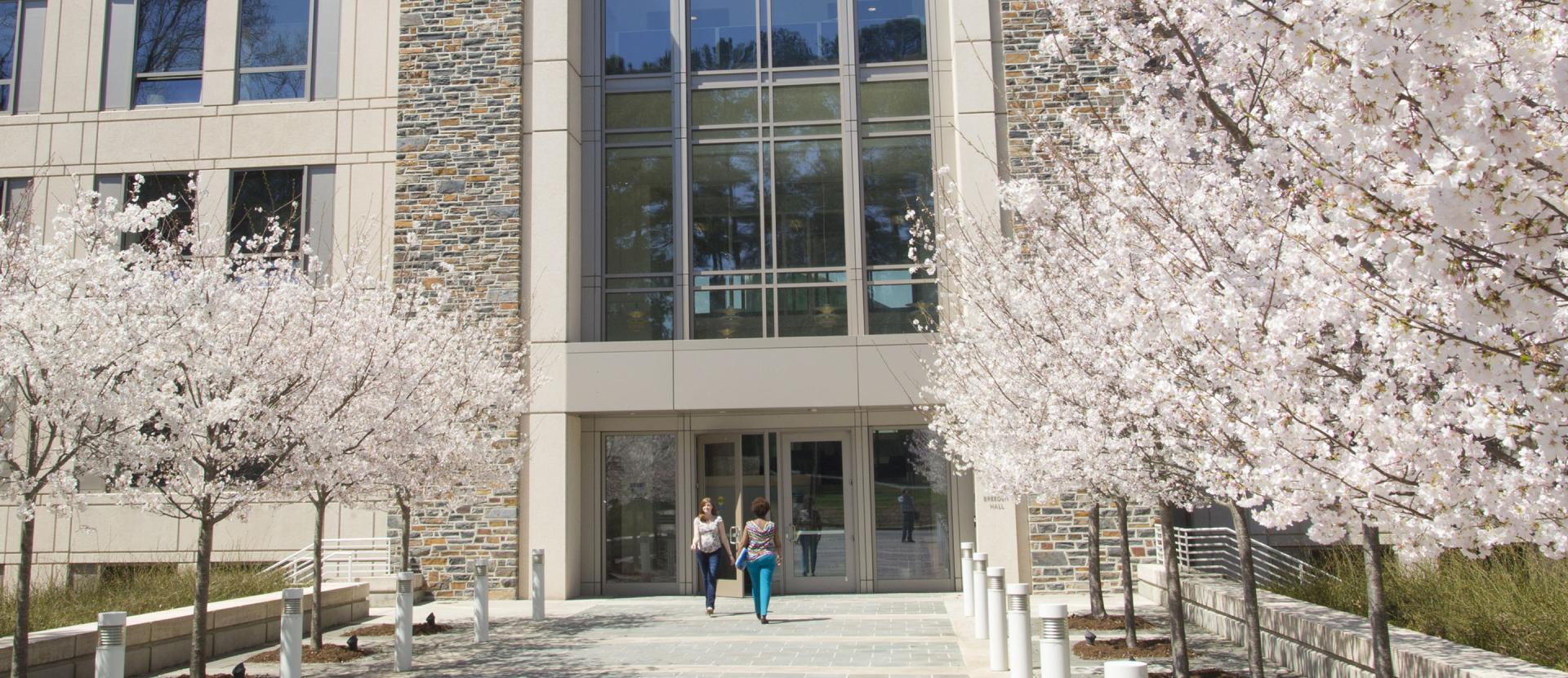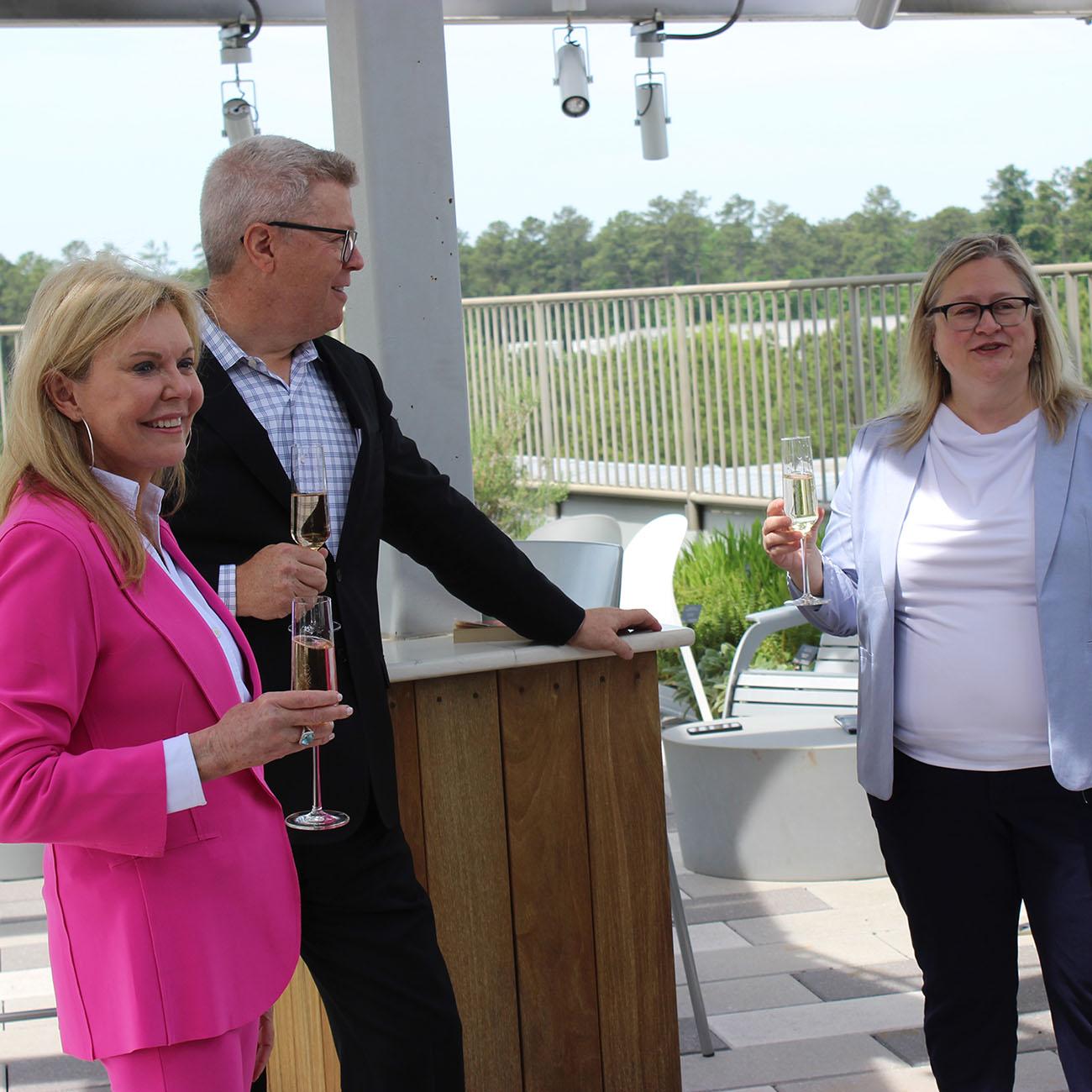360 Degrees of the Business School Experience at Fuqua
Bill Luby M.B.A.’85 shares how Fuqua helped hone his entrepreneurial capabilities to become a successful private equity investor
Before matriculating at Fuqua, Bill Luby says that he was neither a serious student nor accomplished in his business career. He graduated from Trinity College in Hartford, Connecticut, and was a self-described “underachiever.” On a whim, he took the GMAT, scored well, and applied to business schools while bartending in Boston post-graduation. Bill was accepted to Fuqua, and through the help of admissions and financial aid, figured out a way to make it work financially despite, in his words, “having zero net worth.”
Once at Fuqua, Bill felt intellectually stimulated and excelled academically for the first time. He describes his business school experience: “The whole Team Fuqua culture existed back in 1983-1985. Some of my best friends in the world to this day are Fuqua colleagues.” He also was a teacher’s assistant to former Fuqua corporate finance professor Christine Heckman. When Bill was choosing his path at graduation, Dr. Heckman pushed him to take a lower-salaried offer from Chase Manhattan Bank, instead of a higher one from another financial institution, due to better career opportunities at Chase. It was one of the most important early decisions Bill made, as it shaped his professional opportunities moving forward.
Bill worked at Chase for six years in leveraged finance, transitioning to Chase’s private equity arm for another five. Bill was one of the pioneers of Chase’s venture into private equity, and it was his first entrepreneurial experience. At this time, he says, “I got the entrepreneurship bug, or at least the belief I could build a business within a bigger organization.” Bill’s time at Chase ended due to being made redundant due to a merger with Chemical Bank, and this was the catalyst for him to start his investment firm, Seaport Capital, alongside Chase colleague Jim Collis.
Seaport Capital started with just an idea, but Bill felt confident that if things fell through, he was still employable due to the business acumen he had developed: "Fuqua helped refine my entrepreneurship skills and capabilities and gave me the tools so I could be a successful private equity investor." Over the past 26 years, he has created several successful businesses and provided incredible growth for hundreds of companies, adding thousands of jobs. He is very gratified by this work, describing private equity as the perfect job, explaining, “The beautiful thing about it is it’s the full 360 degrees of the business school experience. Organizational Behavior. Marketing. Strategy. Accounting. Finance. Communications. All of these skills have to be in use every single day. And we all like to compete. If you sold a company for more than you bought it for then that probably means you improved the company and made it better.
As an engaged member of Fuqua’s Board of Visitors and a generous donor, Bill has been involved in all things entrepreneurship since graduating from Fuqua, including the beginnings of the Duke Angel Network and Duke Innovation and Entrepreneurship (Duke I&E). He endowed the Bill and Eileen Luby Professorship of the Practice, currently held by Professor [John Fjeld]. Most recently, he created a new programmatic fund to support Duke I&E and to name the Luby Family Bullpen, Duke I&E’s new permanent home at Fuqua. Giving back was never a question for Bill. “I fundamentally believe those who have success should give back. And these investments [in Duke] have a tangible impact on the things I believe in.”
Energized by the recent efforts led by Dean Bill Boulding and Professor Jamie Jones to scale Duke I&E and make its programs and offerings available to an increasing number of students across the university, Bill adds, “Duke is a special place in that we're more collaborative than other big universities.” He goes further to describe how entrepreneurial skills can be used by anyone in an organization for "better, crisper decision making, understanding risk-reward, and making organizations more innovative." Bill is committed to this work and has proven his dedication and determination to make Duke I&E an innovation hub for students, faculty, and the community.
Outside of his involvement with Duke, Bill makes time for his family and four grown children, three of whom have ties to Duke and with Duke I&E. He has gone part-time with Seaport Capital but stays busy investing in deals of his own. Through his long career and generous giving, Bill shows incredible passion for entrepreneurship and investing and expresses how much he feels he owes the university: “My career and life would have been entirely different. [Fuqua] didn't have to give me that opportunity, but they did. I'm forever grateful.”












